Ditch The Script
I ordered a spring duct cleaning for our house, and even though I had done so many times before, this time really brought home the state of call center interaction and how it’s degenerated. interaction and how it’s degenerated.

Here’s how it went:
Me: “Hi, I’d like to order a duct cleaning.”
Agent: “Certainly. Weofferaspringductcleaninforaspecialpromotionalpriceof$129forthebasepriveandachargeof$9.99foreachadditionalventupto20vents.Thispriceisnottobecombinedwithanyothgerofferandisnotvalidinapartmentofcondominiumbuildingsandismeantforsingleuseresidences only….”
At that point I cut her off.
Why in world would a call center agent decide to just ramble on with all the terms and conditions without even *attempting* to establish a rapport – or even ask my name to start with?
Has basic customer service gone completely out the window when it comes to call center interaction?
To further complicate the interaction, she spoke with a very heavy east Indian accent which I found difficult to parse – but it was the speed of her roll that really threw me and made me have to interject to find out what the actual price was going to be, and to find out precisely *when* the technicians were going to be by. None of those critical details were discernable from the word salad she was throwing at me.
Her rapid-fire rambling roll was then interrupted by a silence that was so lengthy, it prompted me to ask: “Are you still there?” (Turns out: she was just checking the schedule.)
The whole thing was repeated when I got the reminder call about the appointment (different agent, similar problem): the staccato attack of rules and stipulations mimicked the original “assault” (a speedy and unintelligible re-cap of the rates, how many vents it included, and what we needed to do to prepare for the appointment.) The whole tone of this call was her barking instructions to me from her script.
Did I miss something? I’m a….customer, right? You’re not a nurse, barraging me with information I need to know about my upcoming colonoscopy. I’m giving you hard-earned cash for a service. Be nice to me.
I fully understand the need for call center agents to follow a script. If they just “winged it”, crucial information would not be imparted to the customer.
However, I’d like to see the training of call center agents to include the idea that a script should be a “checklist” and used as a *reference* rather than a verbatim monologue. That, a few other essential things that call center agents should know:
A Relationship Needs to be Built
A huge “right foot” to start off on is to build the relationship from the ground up. A good place to start is to ask my name and ask how my day’s going. How about asking if I’d used the company before? If so, that could be a good gauge as to just how much info you need to impart. (“You’ve used us before, so you’re probably familiar with our rates and procedures, but just in case, I’ll let you know that our spring cleaning rate is….” Much better than a full on information “attack” right out of the gate.
Don’t Lose Sight That They’re a *Customer*
The necessity to impart crucial information – such as the importance of us having our air vents uncluttered for your duct cleaning appointment – while necessary, should never be done in a way that bosses or dictates to the customer. Remember they are a paying client and should be treated in a valued way – not as someone who needs to comply in order to receive your service.
…and That Script? Don’t Ditch It. But Use It As a Reference.
Just like film actors who are sent short scripts called “sides” to audition with, call center agents should – if not memorize – at least be familiar enough with the script to be able to refer to it, while riffing on it and saying the words in their own words. Nothing’s worse than sitting – trapped – while having to listen to someone reading off a script. The facts are important to impart to the customer; think of ways of getting those points across that sounds more like the agent advising the caller, rather than reading to the caller.
Don’t Overload.
Callers can get overwhelmed by too much information all at once. This can be particularly true for medical offices, where patients calling in are already apprehensive, and are limited as to the amount of information they’re actually retaining. A helpful strategy can be something like: “I’m going to e-mail you all information you need to know before the appointment, but here’s a quick breakdown…” where a promise of more information –sent in a format that can be digested gradually – is a smart way of not overloading the caller.
Asking if there are any questions is also a good way to gauge the information “fullness” of the caller.
Scripts are important to use as a guide; make sure your script doesn’t take the place of *actual* natural give-and-take of human conversation.
Allison Smith is a professional telephone voice heard on platforms globally. Theivrvoice.com, @voicegal.











